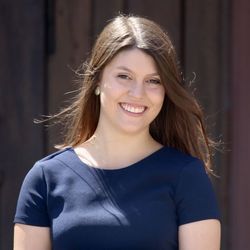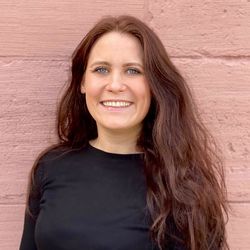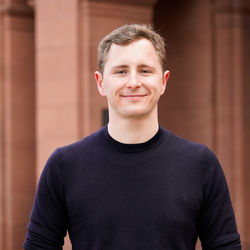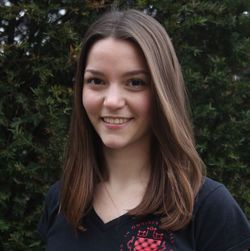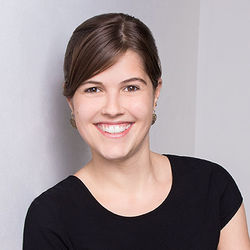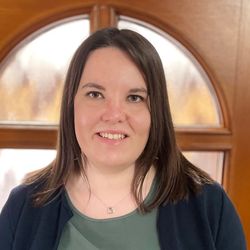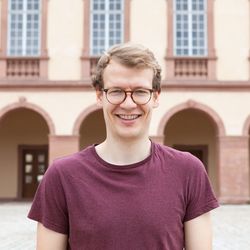Master of Education (M.Ed.) in Teacher Education
Program facts and information
Degree: Master of Education (M.Ed.)
Standard period of study: 4 semesters (2 years)
ECTS credits: 120
(two subjects with 24 ECTS credits respectively, 26 ECTS in Education Sciences, 15 ECTS in Teaching Methodology, 16 ECTS credits for the placement semester, 15 ECTS credits for the master's thesis)Language of instruction: German and, depending on the subjects chosen, English, French, Italian, or Spanish
Language requirements: German (click here for further information) and other languages, depending on the subjects chosen. For further information see “Admission requirements and selection"
Program start: Fall semester (September) and spring semester (February).
Academic calendarSchool: depending on the subjects chosen (School of Humanities, School of Social Sciences, School of Business Informatics and Mathematics)
Semester fee: EUR 194 (more information)
Tuition fees for international students from non-EU countries: EUR 1,500
Tuition fees for a second degree: EUR 650Program overview
The master's program in Teacher Education (M.Ed.) at the University of Mannheim is the right choice for all those who want to work as a teacher either at secondary schools (Gymnasium) or vocational schools.
The program is based on the bachelor's program in Teacher Education (B.Ed.) and provides in-depth knowledge in the subject-specific courses of the two chosen subjects as well as in Education Sciences and teaching methodology. The two subjects are each studied to the same extent. Students thus acquire the professional competence that will be necessary for teaching the respective subject in school.
Among others, you can choose from the following subjects:
German ♦ English ♦ French ♦ History ♦ Informatics ♦ Italian ♦ Mathematics ♦ Philosophy/
Ethics ♦ Political Science ♦ Spanish ♦ Economics and Business Administration *Please note that if you chose the subject Economics and Business Administration or the subject combination History and Political Science, you are only eligible to teach at higher academic secondary schools (Allgemeinbildende Gymnasien) in Baden-Württemberg.
One of the program’s focuses is on Education Sciences. Students deal with teaching and learning from a scientific perspective and acquire important pedagogical and/
or psychological knowledge and competencies for their later profession as teachers. Within the framework of the courses, topics such as diagnostics, heterogeneity and inclusion are dealt with in depth and applied to practical problems at school. Service-learning seminars in cooperation with Mannheim secondary schools and vocational schools ensure that theory and practice are combined in a way as to promote learning. Teaching Methodology seeks to improve the students’ skills in the effective teaching of subject content in class. In addition, special attention will be paid to the subject of multilingualism and education from a didactic perspective.
The scientific contents and competencies taught at the university are applied in practice during a placement semester that can be completed either at a secondary school or a vocational school. The placement semester enables students to get to know the school sector in a well-founded practical way.
Why study Teacher Education at the University of Mannheim?
The master's program in Teacher Education is focused on the challenges that schools are facing today. The program has an interdisciplinary approach (combining subjects, Teaching Methodology, and Education Sciences) and provides teaching and research on currently relevant, school-related topics such as multilingualism and heterogeneity. In this program, students will acquire the skills they will later need as teachers at school.
Teacher training in Mannheim focuses on the issues of multilingualism and heterogeneity. The opportunities to participate in current, school-related research between the poles of theory and practice are particularly good. For example, a Chair of Didactics on the subject of Multilingualism will be established. Here, students can learn about the impact of multilingualism in class and how multilingualism can be used positively.
As part of an education partnership, the University of Mannheim closely cooperates with various Mannheim schools in the field of teacher training. Courses combine theory and practice, and students can broaden their knowledge and acquire skills through real-world problems in real-world environments.
This way, the program ensures that students are ideally prepared for their future careers and qualify for the preparatory service (Referendariat) – the next step on the way to becoming a teacher.
Students enrolled in the master's program in Teacher Education are appreciative of the great support and advice they receive throughout their studies. The program managers, the Student Services team, the subject-specific academic advisors, and the teachers are happy to answer your questions on the program.
Career opportunities
The master's program in Teacher Education ensures that graduates are perfectly prepared for a profession as teachers at secondary schools or vocational schools. Graduates of the master's program in Teacher Education meet the corresponding admission requirements to be admitted to the preparatory service for a career as secondary school teachers at secondary schools and vocational schools (Referendariat).
In addition to a classic career in teaching, the acquired competences also qualify for other activities, for example in adult education. It is also possible to start an academic career.
Required interests and skills
Students of the master's program in Teacher Education should
- be enthusiastic about the two subjects,
- have fun imparting specialist content,
- show interest in scientific studies on teaching and learning,
- be sensitive to the challenges of multilingualism and heterogeneity in the classroom,
- enjoy the challenges of studying different disciplines and combining them independently,
- be able to reflect,
- have the ability and motivation to transfer and apply the scientific content of a university program of study to the practice.
Program structure
Studying abroad
In the teacher education programs, there are diverse and exciting opportunities for studying abroad. The University of Mannheim is partners with 450 universities around the world. In the master's program in Teacher Education, studying abroad is optional. However, students are encouraged to spend a semester abroad. The best time to spend a semester abroad is the fourth semester. Students who plan on spending a semester abroad during their master’s program, usually write their master's thesis in the semester following their stay abroad. Another option is to do the placement semester abroad. In collaboration with the International Office, your respective school can help you plan a period of study abroad.Internships
The master's program in Teacher Education has an integrated placement semester. During this placement semester, students are provided with the opportunity to get to know the school sector in a well-founded way and with professional guidance and supervision. The placement semester takes place during the third subject-specific semester. Students can complete the placement semester at secondary schools or vocational schools in Baden-Württemberg and, under certain circumstances, also abroad. As a rule, the placement semester comprises twelve weeks of instruction and accompanying events at the Institute for Didactics and Teacher Training.Continuing Education
Certificate programs
Strengthen your potential, deepen your knowledge, find solutions for challenges we will face tomorrow – there are many good reasons to think outside the box, get to know and try out new things even during your studies.At the University of Mannheim, you can do this in the “Studium Oecologicum” which focuses on sustainability. In our certificate program, you will acquire interdisciplinary expert knowledge which can help you to act ethically and to make holistic decisions.
Language courses
Making language learning easier: No matter if you want to learn Japanese, Hebrew, Spanish or Norwegian, take the Graduate Record Examination Test (GRE), The European Language Certificates (telc) or the TOEFL test – each semester, the University of Mannheim offers language courses and language certificates in more than 16 languages for students and non-university members, online and on campus!Studium Generale
Are you interested in IT or communication trainings or theater, music, or drawing courses? Studium Generale has a vast range of courses available to all.Doctorates
Successful graduates of the master’s program can earn a doctoral degree from the University of Mannheim. The offer varies according to school and subject.
General information on doctoral studies at the University of Mannheim
Admission requirements and selection
In our selection process, we take numerous criteria into account. For more details, please check the selection statutes (see below). Be bold! Please do not hesitate to contact us if you need advice. We are looking forward to receiving your application!
German, English, French, History, Informatics, Italian, Mathematics, Philosophy/
Ethics, Political Science, Spanish, Economics and Business Administration Enrollment for the Master of Education (M.Ed) program for teaching at secondary schools (Gymnasium) requires that students have received a study place in two subjects of the degree program. There is an individual selection process for each subject.
Admission requirements
If you have not yet completed your bachelor’s degree, you may still apply for a master’s program as long as will provide a proof that you have obtained at least 140 ECTS credits.
- Successful completion of a bachelor’s program in Teacher Education qualifying graduates to teach at secondary schools (Gymnasium) and including two subjects and their Teaching Methodology, Education Sciences and teaching practice at a higher education institution in Germany or abroad (also Berufsakademie), corresponding to at least 180 ECTS credits or a period of study of at least three years
- In exceptional cases, admission is also possible after having completed a subject-specific bachelor’s program which includes teaching-related elements to the same extent
- Proof of subject-specific qualifications in the two subjects and their Teaching Methodology as well as Education Sciences corresponding to the qualifications in the bachelor's program in Teaching Education for teaching at secondary schools (Gymnasium).
- If you are not able to prove all subject-specific qualifications, the missing subject-specific qualifications must not exceed 50 ECTS credits.
- In the individual subjects, the missing subject-specific qualification must not exceed 20 ECTS credits.
- In Education Sciences and Teaching Methodology, the missing subject-specific qualification must not exceed 5 ECTS credits
- In Education Sciences, subject-specific qualifications corresponding to the competencies acquired in the first school placement with seminar (“Orientierungspraktikum mit Begleitseminar”) must be proven.
- If the subject-specific qualifications are missing, you can still apply, since you can acquire these qualifications later on.
- Completion of the first school placement
- Proof of proficiency in German
- Proof of of proficiency in other languages (depending on the subject)
Selection criteria
The selection criteria are irrelevant since this program of study is currently not selective.Selection statutes
Under “Admission requirements and selection” we have compiled the most important selection criteria of the program for you. For more detailed explanations of the selection process and the legally binding requirements of the degree program, please refer to the selection statutes.- Successful completion of a bachelor’s program in Teacher Education qualifying graduates to teach at secondary schools (Gymnasium) and including two subjects and their Teaching Methodology, Education Sciences and teaching practice at a higher education institution in Germany or abroad (also Berufsakademie), corresponding to at least 180 ECTS credits or a period of study of at least three years
Application
Scholarships and funding
The university offers various funding opportunities. Around 200 Mannheim students receive scholarships every year, which are intended to give them the freedom to focus on their academic achievements or to continue their voluntary work alongside their studies. Find out more about the funding opportunities and feel free to apply, for example, for the Deutschland Scholarship, the Opportunity Mannheim Scholarship or the Elite Sports Scholarship Rhine-Neckar Metropolitan Region.Funding opportunities for international degree-seeking students
Application deadline
The application deadline for fall semesters starts on 1 April and ends on 31 May.For the spring semesters the application is possible from 15 October until 15 November.
Contact
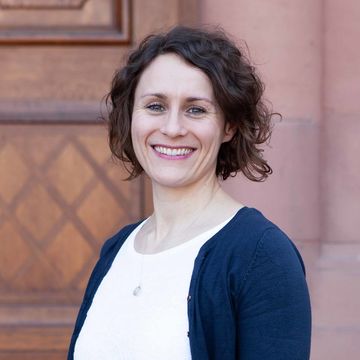
Sarah Kern, M.A.
School of Humanities
Schloss – Room EO 286
68161 Mannheim
Tue 10–12 a.m. – Office consultation hours
Wed 10–12 a.m. – Online consultation hours
Please book an appointment for the consultation hours via https://www.phil.uni-mannheim.de/en/academics/virtual-office-hours/
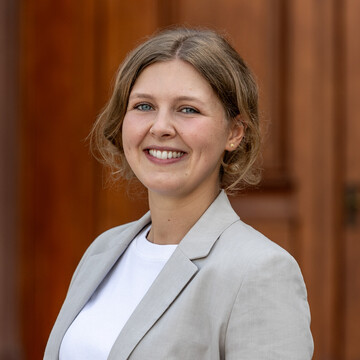
Laura Grabarek, M.A.
School of Humanities
Schloss – Room EO 282
68161 Mannheim
Tue 10–12 a.m. – Office consultation hours
Wed 10–12 a.m. – Online consultation hours
Please book an appointment for the consultation hours via https://www.phil.uni-mannheim.de/en/office-hours-teacher-education-programs/
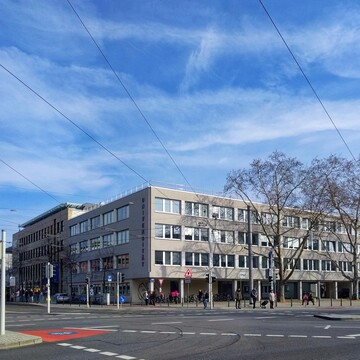
Admissions Office
L 1, 1 – Room 157, 158
68161 Mannheim

